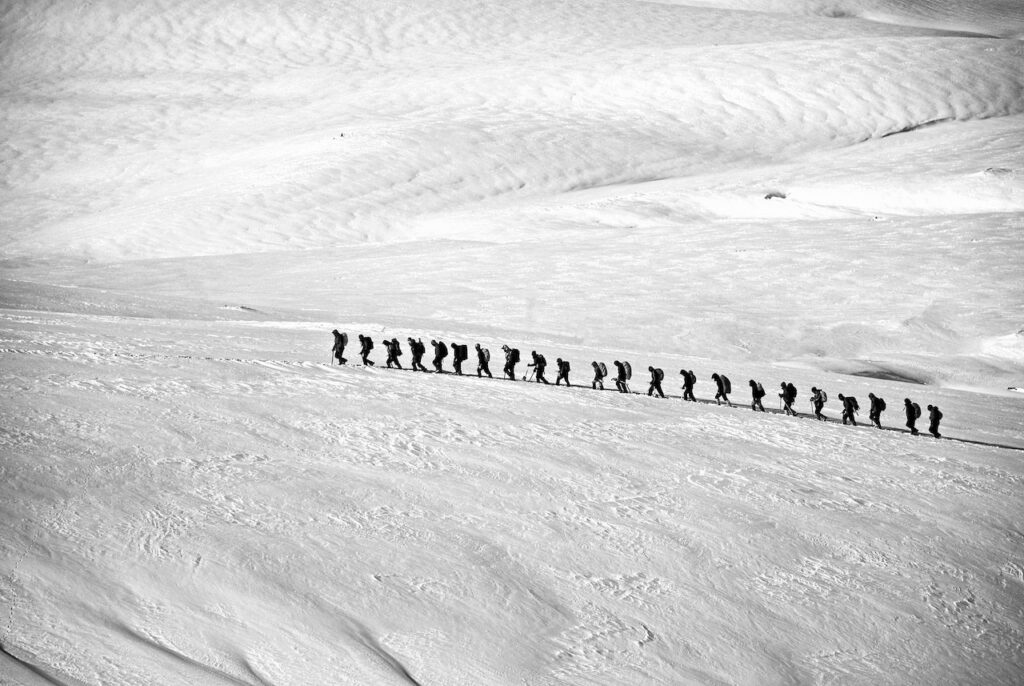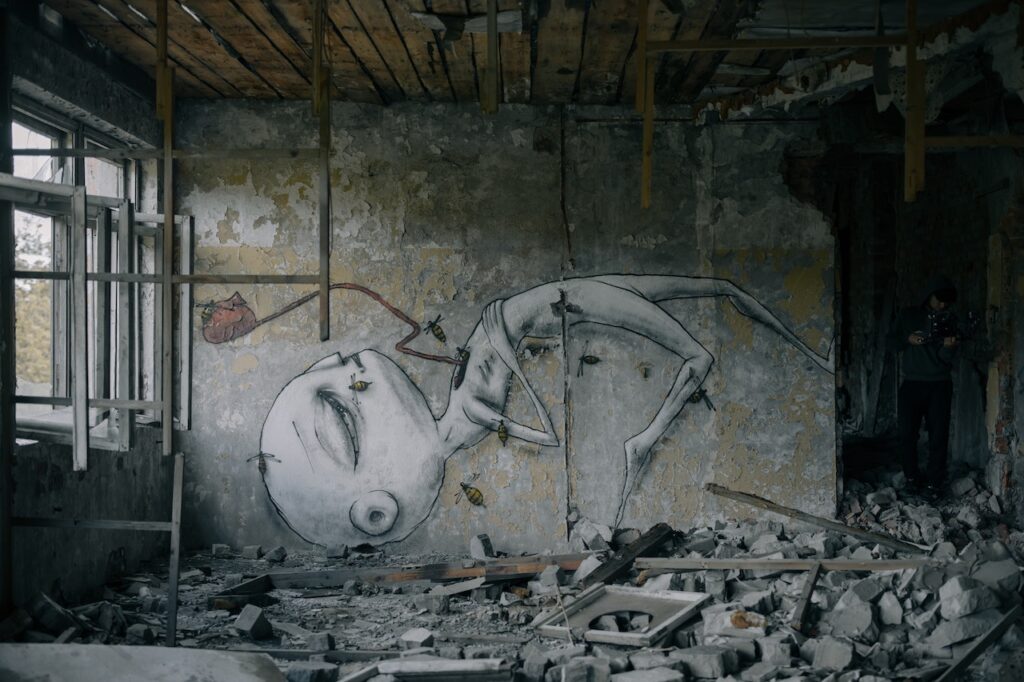
Having children, procreating, reproducing, bringing babies to the world – use whatever expression you wish, but we can all agree that this activity is the most important for sustainability of humanity. Without new people (children), this world would be doomed. Or to be more precise, the world would not be doomed, but humanity would.
So then, let’s imagine a scenario where one day everyone decides not to procreate anymore. What would bring that kind of scenario to the daylight, nobody knows, but we can surely hypothesize about it. Perhaps, some grand hypnosis happened suddenly to every human being. All average Joe’s and Susan’s of this world suddenly receive idea to stop reproduction.
What would happen in such a scenario? In a year, in 10 years, in 100 years or during one generation’s lifetime? Let’s delve deeper into the topic.
Population Statistics

At the time of writing this article (October 2022) there are 7,981,734,913 (seven billion nine hundred and eighty one million) people on this planet. This number changes every second as some people die while others are born.
For example, in 2021 there were around 134 million births. A lot, one would think. And it really is, especially if we compare it with just 70 years ago, as then there were around 92 million births (42 million less).
On the other hand, many people die each year. In 2021, around 70 million people died. In 2019, according to the World Health Organization (WHO), about 55 million people died. So, it is easy to conclude that there are more births than deaths each year. That is what propelled humanity to such big numbers.
According to the World Bank, for every 1,000 people in the world, an average of 7.748 people will die each year and 19.349 will be born. That’s a ratio of about 2.5 births for every death.
Note: did you know that in 1900 there were fewer than 2 billion people on the planet while today there are almost 8 billion. Mind blowing growth ha?
So then, in our imaginary scenario of no reproduction, we would only have deaths. No births whatsoever.
Ok, people currently pregnant would probably give birth and that would be it. In 2012, worldwide, there were approximately 213,4 million pregnancies. Some of those were unwanted, some didn’t go well, and some were terminated on purpose. In our imaginary scenario of sudden stop of births, we can assume that there would be still several million ongoing pregnancies until full stop, but those numbers wouldn’t make much difference in overall picture, as we will see in next paragraphs.
No More Reproduction

Overall picture, aka the world population would start to change drastically. And very fast. Say, that everyone (and I mean everyone) one day just stop having children. Whether it happens because of mass hypnosis or because of some kind of global sterilization program, it doesn’t matter. But one thing that does matter are dire consequences that would occur in every possible segment on this Earth.
Having said that, let’s hypothesize more about that scenario by looking at the short term and long term.
Day 1 – Everyone decides not to have children anymore. Ever!
Day 2 – Nothing happens yet, because globally this information (decision to stop having children) is not known. It is only known to individual people and individual couples. Pregnant people are still pregnant, but new procreation is out of the question. For everyone.
Day 3 – Still nothing.
Day 30 – Gynecologist are starting to notice something weird. No new women calling for appointments about their pregnancies.
Day 60 – Now statisticians have started to notice something is not right.
Day 90 – This has now become known problem. Obviously, there are no new pregnancies in the world. Why is this happening? Have all people become sterile all of the sudden. News is flooded with topics about procreation, sex, pregnancies and human population.
Day 280 – The average length of human gestation is 280 days. Now, almost every woman who was pregnant already gave birth. The last birth.
Day 365 – No new births for 85 days in the whole world. This is now a big problem. Big, big problem. People start to panic. News even more. Everybody is wondering what is causing this and what will happen to humanity if it continues. Not only long term (100 years), but also short term. I mean, without new people, everything will stop in a couple of decades. As people get older and die, one thing that will for sure happen is the deficit of people. Everywhere. On workplaces, on the street. Everywhere.
Day 3652 (a decade) – 600 million people could die in a decade. That means that the population is decreasing rapidly.
Day 18260 (5 decades) – It is hard to calculate how many people would die in such a weird scenario as it would depend on many circumstances, but we could roughly say that half of the population would be missing. Perhaps even more. Additionally, all people alive are now older than 50. Remember, the last person was born 50 years ago. So now we only have people in their 50’s, 60’s, 70’s, 80’s, 90’s and perhaps several “lucky” ones – so called centenarians (people older than 100).
Day 36520 (100 years from procreation STOP) – Barely a few people are alive now. If anyone. In normal circumstances – people get to live to 100 or more. Rarely, but they do. But in this imaginary situation, the world would collapse much sooner. For humanity, that is. Without new people there is no economy. There is no production of food or anything necessary for modern human life. Sure, some people would survive somehow. But most would be dead.
…..
Total Collapse and Real Threat to Humanity

So, obviously – it is easy to conclude that without procreation, humanity would be gone for good. You don’t need to be Einstein to figure out that.
But what is thought-provoking is to think about everything in between. How would people cope with that? What would the economy look like? Would people still have sex?
One simple answer is – everything would collapse in a matter of years. Completely!
This society is “programmed” for constant growth. Both biologically and economically. Sure there are downturns with slow growth, stagnation or even decline but those are not drastic nor everlasting. In this imaginary scenario, the decline of human population is constant without any hope for growth.
In such scenarios, only catastrophes can happen.
Many people around the world are actually saying that we’re already in a problem with regards to human population. By that I don’t mean overpopulation, but just the opposite. More and more people are deciding not to have children.
By 2080, the world’s population is expected to peak at 10.4 billion. Some people say it will be even sooner. Elon Musk is recently sharing his concerns about population decline in near future. He is very scared about low birth rates.
However it is, or it will be – we cannot for sure know how will this world look like in 100 or 1000 years. But one of main constants in human equation for our persistence on this earth is procreation.
Our future evolution depends on it. Now, people could argue that one day we would live forever, thus there will be no need for procreation. Or perhaps that we would be connected to computers, achieving some kind of transhumanism. In either case, we need to ask ourselves – is this the future we would like to see.



























